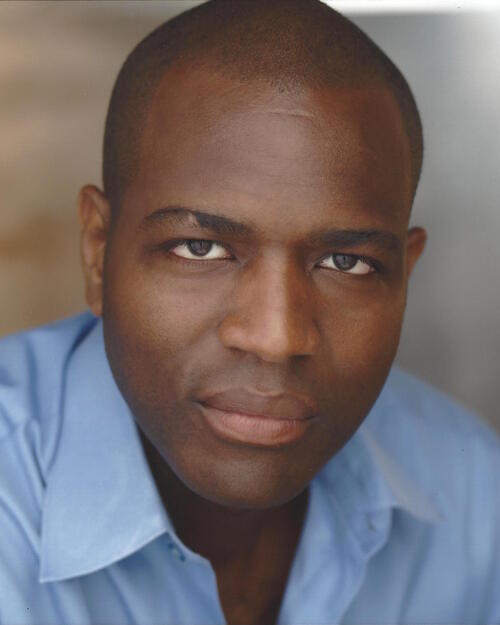
New Black Studies programs to begin in 2022
Waterloo prioritizing equity and anti-racism and new and future academic offerings

Waterloo prioritizing equity and anti-racism and new and future academic offerings
By Victoria Lumax University Relations
> Dr. Vershawn Young (dr. vay)
> Professor, English Language and Literature and Communication Arts
> Lead, Black Studies Implementation Team
As a founding member of Waterloo’s Black Faculty Collective, a group of Black scholars working both within and outside the institution to end anti-Black racisms, Professor Young (based in Communication Arts and English, and who goes by dr. vay) has taken a leadership role in the work to create of the Black Studies diplomas and future programming.
“The Black Studies Implementation team, assembled by Dean Sheila Ager, has been working hard to prepare for the programs’ launch,” says dr. vay. “We have consulted diverse groups of curriculum advisors, course developers, institutional supports, departmental members and community leaders to guide the design of Black Studies at Waterloo — an academic offering that will help Canada and beyond make progress toward a more equitable and liberated future.”
"We are excited about the opportunities for learning and action that the new diplomas in Black Studies provide for our students, our faculty, and our broader community. It's not enough to say that we're committed to social justice — we want to drive positive change," said Dean Ager.
According to dr. vay, intersectionality — recognizing the interconnected nature of identities such as sexuality, religion, gender, race, age, class and region — will be the key lens through which we undertake Black Studies at UWaterloo. Anti-racist and anti-colonial pedagogy will be the cornerstone of program delivery, and respect for lived experience will be key to student learning. Future focuses for program development are Black entrepreneurship and anti-racist community engagement and consulting.
“Including entrepreneurship would provide learners with the tools to have immediate impact on local business development, Canada’s economy, Black business prowess and interracial relationships,” says dr. vay. “The second theme will equip students to be anti-racism champions in whatever discipline they are pursuing. These prospects give me a lot of hope.”
Black Studies at Waterloo is interdisciplinary and transdisciplinary. Some sample course titles are “Taking B(l)ack History,” “Introduction to Anti-Racist Communication,” “Black Theatre Workshop,” and “Strategic Management of Black Enterprises.”
dr. vay, whose background is in Black Studies, says many students he’s taught or interacted with expressed a desire for more courses that focus on Blackness and he is now looking forward to being able to meet this interest.
“In general, Black Studies isn't well developed across Canada, and I am looking forward to Waterloo becoming a leader in this discipline,” says dr. vay. “The progress that has been made at Waterloo is bittersweet — I believe that a Black Studies program should have always been part of the University curriculum, but this growth is also incredible.”
To learn more about progress made in phase 1 (July 2020 to June 2021) and upcoming phases of the development of Black Studies at the University of Waterloo, visit the Black Implementation Team’s comprehensive report.

Read more
The University remains committed to removing systemic barriers to equity and inclusion

Designed by Sahra Soudi and Syrus Marcus Ware for the Black And Free Research-Creation Project.
Read more
Professor dedicates her art, research and teaching to understanding Black freedom

Read more
Higher vaccine hesitancy persists among Black Canadians when compared to the general public
The University of Waterloo acknowledges that much of our work takes place on the traditional territory of the Neutral, Anishinaabeg, and Haudenosaunee peoples. Our main campus is situated on the Haldimand Tract, the land granted to the Six Nations that includes six miles on each side of the Grand River. Our active work toward reconciliation takes place across our campuses through research, learning, teaching, and community building, and is co-ordinated within the Office of Indigenous Relations.